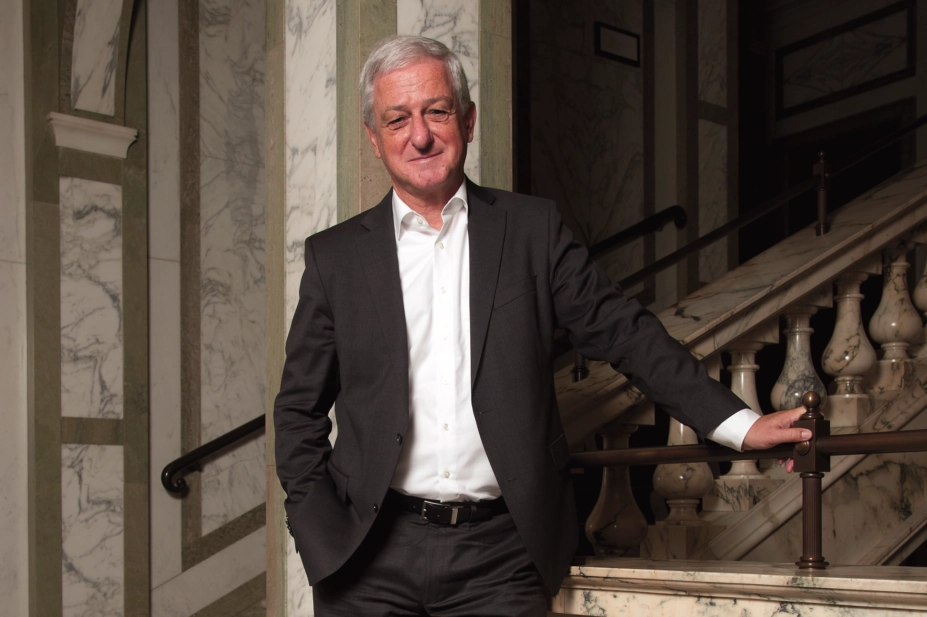
Charlie Milligan
Joerg Reinhardt’s career spans almost 40 years. After completing his pharmacy studies at the University of Saarland in Germany, Reinhardt, acquired his doctorate in pharmaceutical sciences and began working at Sandoz in 1982 aged 26 years. After eight years working as a pharmaceutical scientist, he joined a special development task force for one of Sandoz’s products. This provided the exposure Reinhardt needed to demonstrate his ability to excel within the role. Soon afterwards he was offered the position of personal assistant to the then head of research, and later was asked to run the global technical research function.
In 1994, Reinhardt became head of development for Sandoz and, after the merger with Ciba in 1996, he took the reins as head of development for the newly formed Novartis in 1998, before assuming the role of chief operating officer in 2008 until 2010. After three years as chair of the board of management and the executive committee for Bayer HealthCare, Germany, Reinhardt returned to Novartis in 2013 as chair.
I decided to work in pharmacy as I believe that it gives me more opportunities than doing medicine
Why did you choose pharmacy as a career path?
I wasn’t quite sure what I wanted to do with my life at that time but I knew that I wanted to do something scientifically oriented, life sciences oriented and something that gives me an opportunity to make contributions while also having options. I was undecided between medicine and pharmacy and finally decided on pharmacy as I believed that it would give me more opportunities than doing medicine.
What inspired you to enter the pharmaceutical industry?
I thought that in order to have a more meaningful contribution to public health it may be worthwhile to find out what I could do in industry and so I applied to 15 different companies. Only one answered and that was Sandoz in Switzerland.
Everyone else offered me sales positions but nothing in science, which is what I wanted to do, and so Sandoz was an easy choice. I went to Basel and started in the lab as a pharmaceutical scientist doing tablets and capsules.
How did you find the transition from working as a pharmaceutical scientist to becoming head of development for Sandoz and then Novartis?
I was promoted to head of development for Sandoz, which included the medical department — it was unusual to pick a PhD to run all of development.
It was a big challenge for me. I was really struggling and so for several years I was questioning whether I was up to the job. Then over time you get into the routine and you get a little more self-confident, and you know how to deal with it to some extent — but it’s a fight. You need to go through this, you need to position yourself and be courageous and handle it.
We had the merger of Ciba and Sandoz after that. Ciba had a head of development as well and the new company was struggling with who to pick. They decided that the two of us would run different pieces of development for several years. He was doing the medical piece; I was doing all the project management, tech and regulatory stuff. After two years, the company had to make a decision. It was a tough time, we both gave a speech about the future strategy and then they picked me.
I was head of development for Novartis for a while and then there was an opportunity to move from the development environment into more of a business environment. We made an acquisition of Chiron, a biotechnology company. They needed someone who understood science but also had some interest in commercial aspects and they decided that I would lead the integration of Chiron and run this piece in California. I had to learn the vaccine business and diagnostic business, which was new to me, but it was interesting.
What is your greatest achievement as chair of Novartis?
In these five years we have streamlined the company — we have sold several parts that we believe did not really contribute to the future growth of the business. We have rejuvenated our management team almost completely. It’s about ensuring that you have a generation of management in place that is open to deal with future challenges and is not looking back and relying too much on former successes.
There are two major trends where I believe pharmacies and pharmacists could play a role — one is overall cost explosion and the second is data gathering
I believe that is now the case after several years of hard work. Overall, I think ensuring that the company is fit for the challenges of the next ten years is an important contribution that the board can make, and I believe I have made my contribution to that.
What would you say are the major challenges for the pharmaceutical industry in the next ten years?
I believe the challenge for our industry has always been — and will always be — to stay innovative as our industry is only sustainable if we will continue to produce new medications that people are willing to pay for.
I think the willingness of people to pay for new medications is linked with the level of innovation that you provide and the level of medical benefit that new medication brings, which means that we need to be ambitious in terms of what we are working on. That’s why we have a focus on chimeric antigen receptor T-cell therapy, but also focus on gene therapy, because that really makes a significant difference.
What are your future aspirations for Novartis?
I think what you see at Novartis now is that we go in two directions. On the one hand we still have a significant focus on standard medications — our biggest products at the moment are therapy for heart failure or for psoriasis and other immune diseases. So, we will continue to focus on mainstream diseases but we also have a special focus on really personalised medicine in oncology or in spinal muscular atrophy. That’s the new thing — gene therapy.
How do you see the role of pharmacy and pharmacists in industry evolving?
There are two major trends where I believe pharmacies and pharmacists could play a role.
One is overall cost explosion. Any government in the world, in the UK as much as in Europe or the United States, is struggling to contain the increase of healthcare costs. Pharmacy could play an additional role in terms of dealing with chronic diseases.
Pharmacists could be, in a sense, a low-cost first approach for patients — a gatekeeper role that could be much more meaningful than it is so far. We talk about self-medication and I believe that will get more important. We talk more about prevention — that’s more and more of a topic where pharmacists could really play a role. So, when we look at this system from a purely financial perspective, I believe pharmacists could play a bigger role in dealing with the nitty gritty day-to-day stuff and actually release some of the burden that the primary care system or hospital system has.
And second, we talk about data gathering — everyone is interested in a better understanding of how medications work, what the long-term effects are and learning about the experiences of patients. It’s very difficult to collect these results because of data privacy rules that won’t let us collect this from a physician’s office. I believe pharmacists could play a role in that, as well in terms of sharing experiences and sharing learning that they get from their patients in day-to-day interactions. Adherence to medication is a topic that pharmacists could also play a role in, so I believe cost containment and data gathering are two areas where pharmacists could play a bigger role. It’s relatively cheap to utilise pharmacists in this way when you compare it with the rest of the system.
Industry has not yet recognised pharmacies as valuable — as a new source of information and collaboration
I think industry has not yet recognised pharmacies as valuable — as a new source of information and collaboration. Industry still has medical doctors, the GP system, the hospitals — that’s the primary focus. We have contact with pharmacies but for most of the big players, pharmacies are not yet the place to go.
What is the one thing pharmacists need to have to survive all the different challenges they face?
At the end of the day, it’s a mixture of skills in different areas: be it science, be it managerial, but also luck. Whoever claims that his or her career is 100% based on their capabilities is a liar. It never works that way, there are so many good people out there and at the end of the day a little bit of luck is part of it.
There are a few basic skills for any kind of career in any kind of industry that applies to us as well. I believe it has to do with authenticity, with straightforwardness, candour, courage and general attitudes, but when you look through your senior managers, not all of them display all of these skills to the same extent.
In addition to that, experience and some interest for the bigger scope of things are important. We see very often in science that people are very skilled at dealing with the science, but they are not skilled at dealing with human beings. This skill of dealing with people and being an empathetic manager is something that you need to learn and that you don’t get either with your PhD or with your MD. That’s an intrinsic skill that you have or you don’t.


